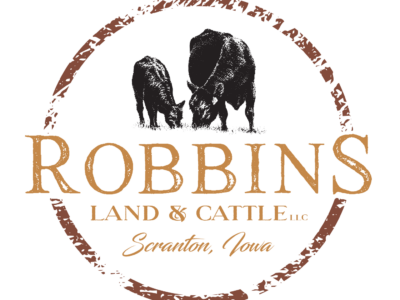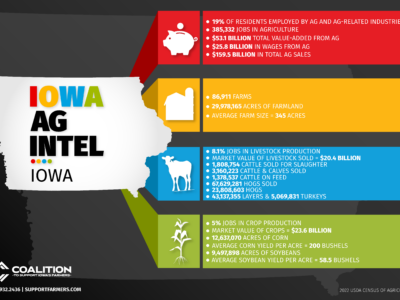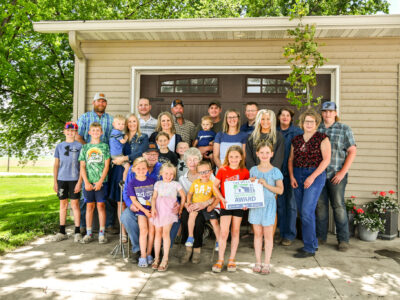Check Permits, Records Before Livestock Inspections
02-02-2015 in Livestock
Reprinted with permission of the Iowa Farm Bureau Spokesman
By: Bethany Baratta
As the Iowa Department of Natural Resources (DNR) continues its inspections of livestock farms as part of the work plan agreement signed with the Environmental Protection Agency (EPA) Region 7, farmers should remain prepared for a potential site visit, a leading Iowa livestock attorney said.
Eldon McAfee, attorney at Bevin, Swanson and Forrest, urged farmers at the Iowa Cattlemen’s Association’s feedlot forum in Carroll last week to double-check their permits and their information on DNR databases.
“Make sure they have the right information before the inspection,” McAfee said.
McAfee said the DNR must conduct desktop assessments and on-site National Pollutant Discharge Elimination System (NPDES) inspections at all large concentrated animal feeding operations (CAFOs). The DNR must also complete desktop assessments and, if necessary, on-site inspections at medium CAFOs before September 2018, the end of the inspection period.
The inspections are part of a 2013 agreement that the DNR signed with the EPA that established guidelines for evaluations of livestock and poultry farms. The plan says the DNR must evaluate livestock farms larger than 300 animal units and document whether or not farmers are in compliance with the Clean Water Act.
It’s estimated that more than 8,500 livestock farmers will be evaluated by the time the inspections are expected to be wrapped up in late 2018.
The DNR must prioritize assessments, McAfee said, but all livestock farmers should be ready. “The DNR may be doing inspections out of order for efficiency,” he told farmers.
For example, if a medium-sized CAFO and a large open feedlot CAFO are within close proximity, the inspector may decide to complete the site visits on the same day.
The DNR must contact the livestock farmers one to three days before the inspection. If the farm has a biosecurity protocol, the farmer should make the DNR aware of the plan before the time of the visit.
“The DNR will not enter confinement buildings,” McAfee said.
Farmers should ask for a copy of the desktop assessment before an on-site inspection, he said.
Self-audits helpful
Because a DNR inspection will cover DNR rule compliance and NPDES permit requirements, farmers are encouraged to complete an environmental review with a consultant, attorney or a third-party source like the Coalition to Support Iowa’s Farmers (CSIF). The coalition’s services are free and confidential.
The self audits are a good way to find and fix any practices that are not in compliance with the law, McAfee said.
A self audit grants immunity from penalties if a violation is discovered during an audit and promptly reported to the DNR before a DNR investigation, he said.
During an inspection, the DNR will review manure management plans, nutrient management plans and other records; ask about the maximum number of head confined at one time over the last 12 months; and inspect and photograph manure storage structures, manure stockpiles, feed storage, mortality handling areas and composting, and areas downhill of the animal feeding operation and discharges.
McAfee encourages livestock farmers to be truthful and courteous during a site inspection. Farmers should supply the inspector with accurate information regarding their farm; farmers shouldn’t guess or approximate with their answers, McAfee said.
“You want to cooperate with the DNR, but don’t put yourself in a situation that you’re answering a question without looking at your records,” McAfee said.
For the inspection, farmers should have nutrient management plans, manure management plans and other facility records available for review.
The DNR inspector will complete the inspection report and send it to the livestock farmers within two weeks of the inspection, McAfee said. If the inspection results in a penalty or a fine, McAfee said it’s possible to negotiate the fine by calling the DNR office.
For more information or to set up a no cost, confidential farm visit, call the Coalition to Support Iowa’s Farmers at 1-800-932-2436.
Recommended News

Robbins Family Hosts Cattle Building Open House
Farmers interested in learning about the benefits of raising cattle under roof are invited to attend an open house at the Robbins family farm to tour Justin and Lacie Robbins...
Read More
NEW STUDY SHOWS IOWA AGRICULTURE EVEN STRONGER
Iowa’s 86,911 family farms continue to be a key driver of Iowa’s economy, contributing 32 percent more to the state economy than in 2017, according to a new study commissioned...
Read More
Farming is a Family Affair
The Streit family of West Bend, Iowa, has cultivated their farm for over three decades, fostering a legacy of hard work and community support. Diane and Tony Streit, alongside their...
Read More